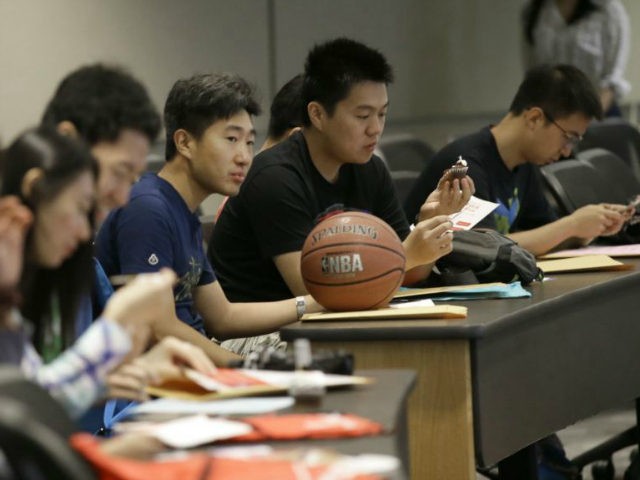The U.S. State Department announced on Wednesday it has revoked over 1,000 visas for Chinese nationals due to national security concerns.
The Chinese government – which has imprisoned a number of foreign nationals without formal charges or a trial on vague national security charges – denounced the American move as “political persecution and racial discrimination.”
The State Department said that as of Tuesday, it has “revoked more than 1,000 visas of PRC nationals who were found to be subject to Presidential Proclamation 10043 and therefore ineligible for a visa.”
Presidential Proclamation 10043, issued by President Donald Trump in June, stated that the PRC (the People’s Republic of China) “is engaged in a wide-ranging and heavily resourced campaign to acquire sensitive United States technologies and intellectual property.” Some of the stolen technology was said to be used by the Chinese state for military purposes.
Some of the “non-traditional collectors of intellectual property” employed by the Chinese government are “post-graduate students and post-doctorate researchers,” so the State Department was authorized to revoke the visa for Chinese nationals linked to the Chinese military or entities involved in its “military-civil fusion strategy.”
“We are blocking visas for certain Chinese graduate students and researchers with ties to China’s military fusion strategy to prevent them from stealing and otherwise appropriating sensitive research,” explained Acting Secretary of Homeland Security Chad Wolf in his annual “State of the Homeland” address on Wednesday.
The State Department said the thousand-plus visas revoked for “high-risk graduate students and research scholars” represented a small percentage of the 360,000 Chinese nationals studying in the United States.
“We continue to welcome legitimate students and scholars from China who do not further the Chinese Communist Party’s goals of military dominance,” a State Department spokeswoman said.
Reuters reported on Wednesday that, based on social media posts from students affected by the State Department policy, many of them studied at universities linked to the Chinese military, and some were encouraged to apply for new visas that might be granted after a more rigorous screening process. These accounts were purely anecdotal, as the State Department has not publicly released the list of suspended visas.
The Chinese government furiously accused the U.S. of “outright political persecution and racial discrimination” for revoking the visas.
“It seriously violates the human rights of these Chinese students,” claimed Chinese Foreign Ministry spokesman Zhao Lijian, the same official responsible for spreading a deranged conspiracy theory in April that the Wuhan virus was an American bio-weapon.
On Thursday, the Foreign Ministry demanded the U.S. “immediately stop using all kinds of pretexts to restrict and suppress Chinese students in the US for no reason.”
Senator Rick Scott (R-FL), a persistent critic of Chinese espionage, applauded the State Department on Thursday, insisting that “anyone with ties to the People’s Liberation Army should not have access to American medical research and military technology.”
“For months I’ve been warning about Communist China’s efforts to steal and sabotage our vaccine efforts, and I applaud Department of Homeland Security Secretary Wolf’s decision,” said Scott, referring to intensified cyber-espionage linked to the Chinese state and directed at American private and government entities working on a vaccine for the Wuhan coronavirus.
Scott was a co-sponsor of legislation in May that would have required enhanced scrutiny of Chinese student visa holders involved in coronavirus vaccine research, but it was blocked by Senate Democrats.

COMMENTS
Please let us know if you're having issues with commenting.